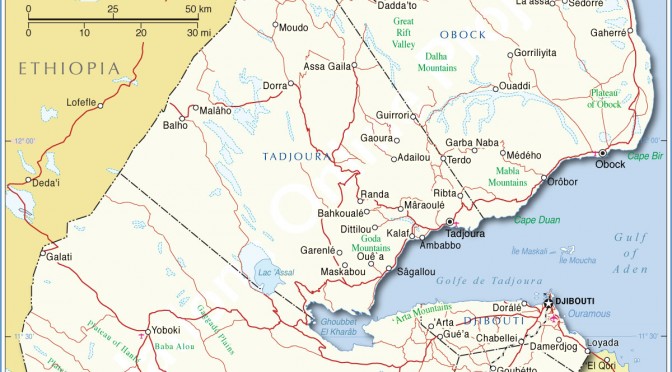Djibouti, a small nation strategically located in the Horn of Africa, has been attracting significant attention from investors and international organizations for its potential to become a regional energy hub. With its strategic location along the Red Sea and the Gulf of Aden, Djibouti is poised to play a crucial role in the global energy market. The country’s government has recognized this potential and has been actively working to develop its energy infrastructure through various key projects and initiatives.
One of the most significant projects in Djibouti’s energy sector is the construction of the Djibouti Wind Power Project. This project, which is being developed by the Djibouti Electricity Authority (EDD) in partnership with the African Development Bank (AfDB), aims to install 60 MW of wind power capacity in the country. Once completed, the wind farm will significantly increase Djibouti’s renewable energy capacity and reduce its dependence on imported fossil fuels. The project is expected to be completed by 2023 and will contribute to the country’s goal of sourcing 100% of its energy from renewable sources by 2030.
Another major initiative in Djibouti’s energy sector is the development of geothermal energy resources. The country is located in the East African Rift System, which is known for its abundant geothermal potential. In 2013, the Djibouti government launched the Geothermal Energy Development Authority (ODDEG) to explore and develop the country’s geothermal resources. Since then, several geothermal exploration projects have been initiated, with the most promising sites being located in the regions of Asal, Fiale, and Goubet.
In addition to wind and geothermal energy, Djibouti is also exploring the potential of solar power. The country receives an average of 3,000 hours of sunshine per year, making it an ideal location for solar energy production. In 2017, the government announced plans to build a 300 MW solar power plant in the Grand Bara desert. The project, which is being developed in partnership with Green Enesys, a Swiss energy company, is expected to be completed by 2021. Once operational, the solar plant will significantly increase Djibouti’s renewable energy capacity and contribute to its goal of becoming a regional energy hub.
In order to support the growth of its renewable energy sector, Djibouti has also been investing in its energy infrastructure. The country is currently working on the construction of a new high-voltage transmission line that will connect its national grid to Ethiopia’s power grid. This project, which is being financed by the World Bank, will enable Djibouti to import electricity from Ethiopia, which has a surplus of hydropower. The transmission line is expected to be completed by 2021 and will help to stabilize Djibouti’s power supply and reduce its reliance on fossil fuels.
Furthermore, Djibouti has been working to improve its energy efficiency and reduce energy consumption. In 2016, the government launched the National Energy Efficiency Program (PNEE), which aims to reduce energy consumption by 20% by 2030. The program includes a range of initiatives, such as the installation of energy-efficient street lighting, the promotion of energy-efficient appliances, and the implementation of energy audits for industrial and commercial buildings.
In conclusion, Djibouti’s strategic location and abundant renewable energy resources make it an attractive destination for investment in the energy sector. The country’s government has been actively working to develop its energy infrastructure through key projects and initiatives, such as the Djibouti Wind Power Project, geothermal exploration, and the construction of a solar power plant. By investing in its energy infrastructure and promoting renewable energy sources, Djibouti is well on its way to becoming a regional energy hub and achieving its goal of sourcing 100% of its energy from renewable sources by 2030.


